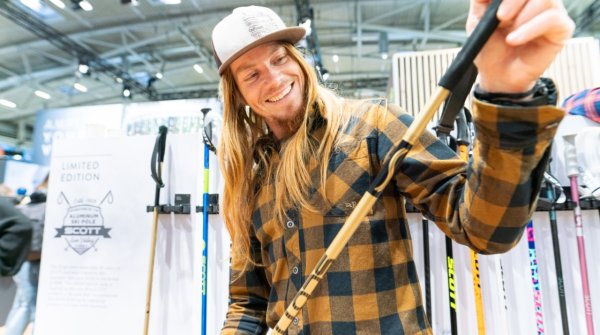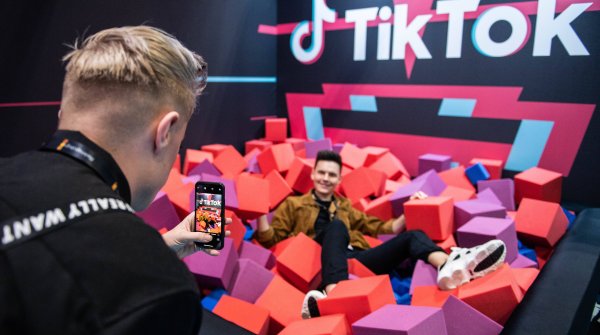
For eleven years, the Viennese agency team4tourism has specialized on cooperations between tourism regions and brands from the sports, lifestyle, car, family and wellness sectors. Team4tourism is the market leader in Austria and currently active in 13 countries. In an interview with ISPO.com, owner Astrid Steharnig-Staudinger explains where the advantages lie, what to consider when choosing the right partner and how she sees the future of brand cooperation.
ISPO.com: Mrs. Steharnig-Staudinger, what are the advantages of a ski region cooperating with a ski manufacturer?
Steharnig-Staudinger: Ski regions or tourism regions in general have been cooperating with ski manufacturers for years. The advantages are manifold. Just look at the mutual communication. Budgets can also be bundled. The region communicates directly with the target group, which is enthusiastic about sports. There is little waste coverage, because the brands can present themselves directly in the regions. A win-win situation for both brands. But: There must be a match, i.e. region and brand must understand each other - like in a good relationship.

So the developments for the future are positive?
Yes, very positive! We notice that there is also an increased interest on the part of the brands to enter into cooperations. Overall, there are signs to cooperate in the longer term and to engage in even more mutual communication. The crux lies in the professional handling of cooperation, i.e. making them measurable. In the future, for example, it will also be necessary to coordinate marketing plans even better.
Is there a trend in this field?
From my point of view, unusual and innovative concepts in the field of cooperation are in demand. The end customers are to be involved even more and the partnerships made even more visible. There is also an increase in theme-oriented cooperation, for example on topics such as freeriding or ski tours. In addition, future cooperation will be worked out even more specifically, even more pointedly. Overall, cooperation is a trend.
ISPO.com shows three cooperation showcases:

Bayerische Zugspitzbahn Bergbahn AG recognized the positive synergies early on, and the topic of strategic brand partnerships began in 2003: "K2 was one of the first partners, others such as BMW, Lufthansa and Dallmayr followed suit over the years," explains Klaus Schanda, Head of Marketing & Sales at Bayerische Zugspitzbahn.
In the more than 15 years of partnership with ski manufacturer K2, the focus has constantly changed: "While snowboarders were the focus in the early years, today the focus is on all-mountain skis and guests," Schanda continues.
Marketing Manager Schanda can confirm the advantages mentioned by Steharnig-Staudinger: "We use the same communication connections and create a common brand presence. In addition, we address the same target groups and underline the cooperation between industry and mountain railways."

There has always been a strong connection between the holiday and ski region of Lech Zürs and Kästle, the Vorarlberg ski manufacturer, which in its early days between 1924 and 1940 was directly called Arlberg Ski. However, the region and brand did not enter into a cooperation until 2017. A three-year contract with the option of renewal, as Germana Nagler, Deputy Director and Head of Marketing at Lech Zürs, explains.
Lech Zürs matched with Kästle in three ways during the cooperation:
- locality
- Testimonial and Freeride World Tour winner Lorraine Huber
- Freeride Eldorado for variant riders
"Kästle has the right product for the job and addresses the same target group worldwide," says Germana Nagler about the partnership. "In no other area is the density of Kästle dealers greater than in Lech." The tourism experts and the ski manufacturer are counting on winning new young guests together.
"Especially through the social media sector," Nagler explains. "Lorraine Huber is a joint testimonial. She holds her Women's Progression Days with Kästle sponsoring at our ski resort, so we succeed in positioning Lech Zürs in the freeride sector.

The Austrian ski manufacturer Fischer Sports has been Ischgl's exclusive ski partner since the 2017/18 winter season. Christian Wimmer, Marketing Alpin Österreich, explains the reasons for this still rather fresh cooperation: "We entered into the partnership because, due to a special marketing orientation, we were increasingly looking for a ski region in which we could additionally present our brand".
It was important to Wimmer that the core identities fit together well. Ischgl had the feeling that they had found the right partner, explains Wimmer: "We saw a good opportunity to test how cooperation with a ski region works on a grand scale. We can showcase our brand very well and both partners benefit to a high level."
Fischer's marketing man sees an advantage in the comprehensive on-site presence: "In Ischgl, we have only been present with our ski brand in the sports retail trade up to now. This cooperation will enable us to intensify our local presence, differentiate ourselves from our competitors and create added value for the stationary sports retail trade."
This allows the end consumer to be directly picked up in a "360° marketing strategy". Wimmer: "We are no longer only visible in sports retailers, but also attract attention through classic banner and flag advertising in ski resorts and social media marketing such as Instagram and Facebook."
Wimmer can demonstrate measurable success for Fischer: "Classic banner advertising is not measurable. Click rates in the social media sector, on the other hand, are. In addition, sales in the sports retail trade are traceable on site, and this has demonstrably increased in Ischgl."
For example, the brand is also present with its image film at the opening and season closing concerts, such as the Helene Fischer concert, which was attended by 26,000 people.
But Wimmer is also sure that the strong winter plays into the cards of the strategy. He therefore only wants to sum up the cooperation after three to five years. What Wimmer underlines, however, is that the company's strong presence in the ski resort also provides "the sports retail trade and here in particular the buyer with an instrument that creates confidence in good sales of Fischer skis".
The region is also convinced of the partnership. Nina Siegele, Marketing Tourismusverband Paznaun-Ischgl, speaks of "Two top brands from Austria" that have united here. Siegele sees a high importance in such cooperation, because "it is budget-friendly and the image transfer as well as the product are credibly transported to the end consumer".
- Awards
- Mountain sports
- Bike
- Fitness
- Health
- ISPO Munich
- Running
- Brands
- Sustainability
- Olympia
- OutDoor
- Promotion
- Sports Business
- Textrends
- Triathlon
- Water sports
- Winter sports
- eSports
- SportsTech
- OutDoor by ISPO
- Heroes
- Transformation
- Sport Fashion
- Urban Culture
- Challenges of a CEO
- Trade fairs
- Sports
- Find the Balance
- Product reviews
- Newsletter Exclusive Area
- Magazine







